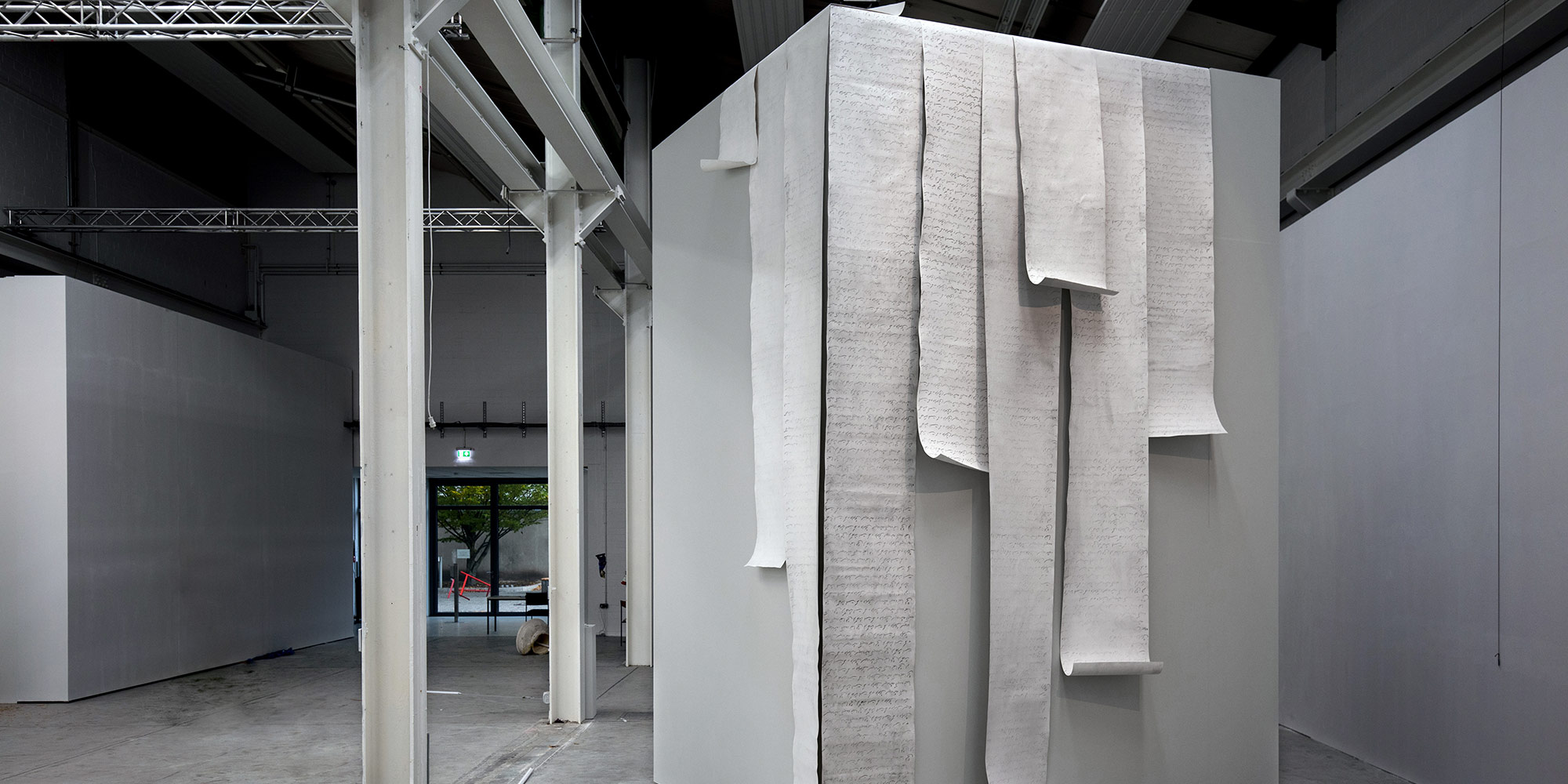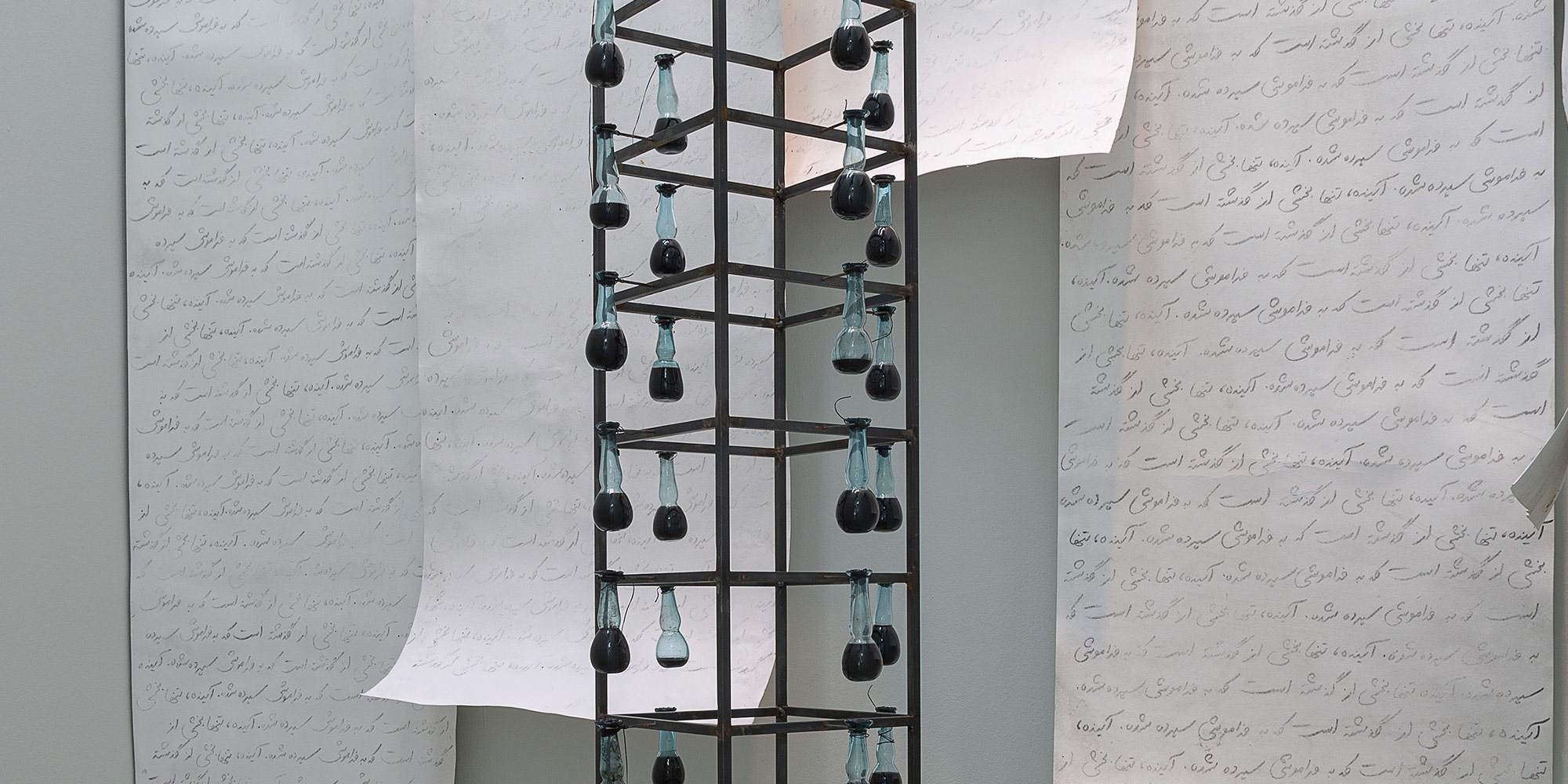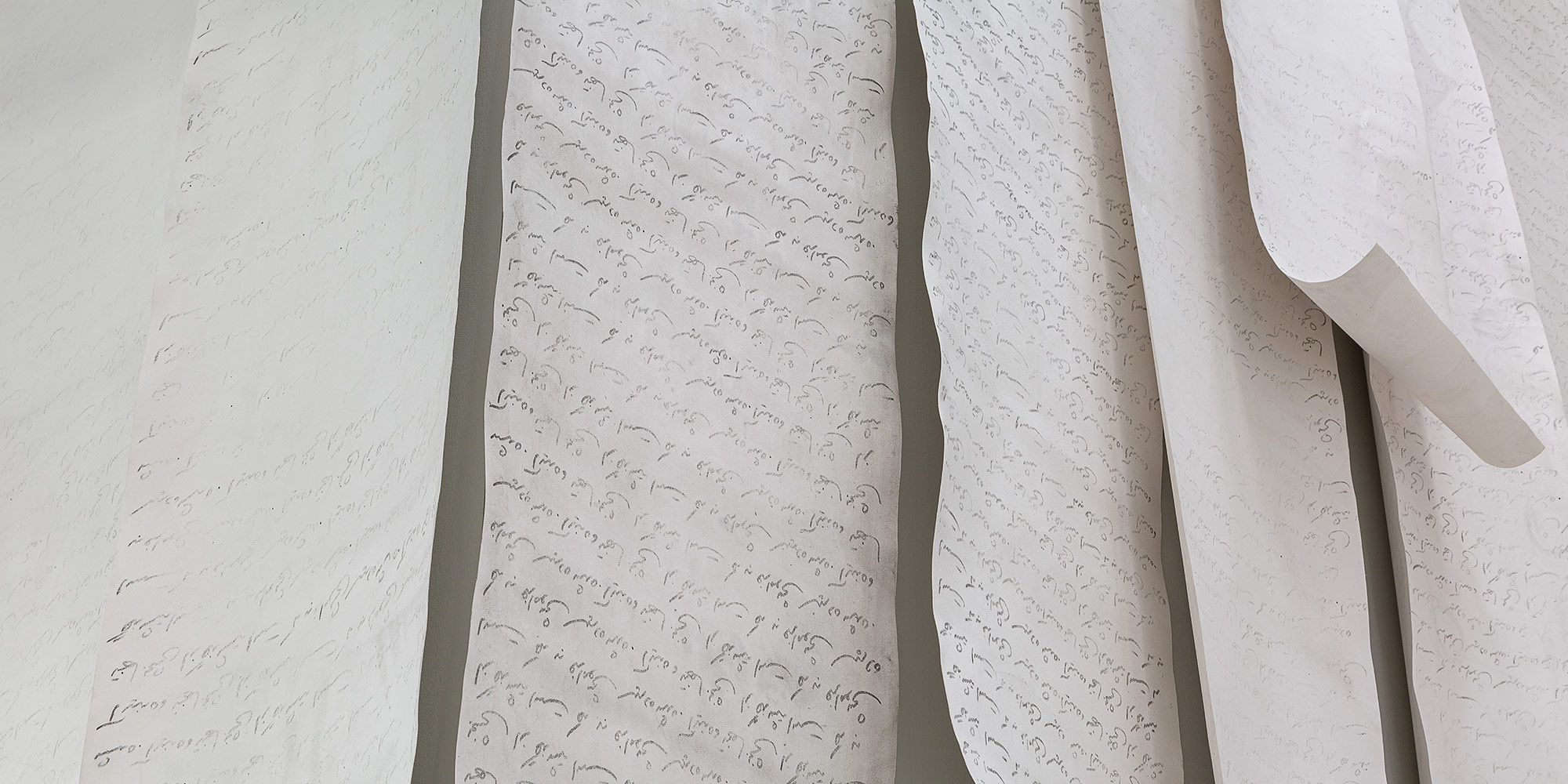“The word ‘jowhar’ has several meanings in Persian (ink, substance, gem, nucleus, being and principle), which artist Mahsa Aleph explores in her project. Through teardrop catchers and long paper rolls, she washes and recycles words to combine past and present, reclaiming and remixing classical Persian literature. At a time when Iranian people are suffering from repression and crackdown, this exploration of meaning and culture that transcends stereotypical views is a deep, valuable contribution.”
Jury Statement
The project consists of tear-catcher jars filled with ink instead of teardrops: ink as the recaptured essence of words. The essence—or the recycled ink—is captured from words, for it to convert into other words.
Each time a word is washed, it leaves a shadow of itself; and each time the ink is recaptured from a word, it pales in color. However, no sound or words disappear; they turn into other words.
Recapturing ink from words is a chance for rewriting. Washing words recaptures the ink from the paper as shedding tears purges the spirit and polishes the soul. In old times, they used to place tear-catchers in graves. Some say, the more teardrops the jars contained, the longer a mourning period it indicated; the lamentations continuing all the way until the evaporation of the last teardrop.
The sentence repeatedly written on the eight paper scrolls in this installation reads: “The future is merely a part of the past which has been forgotten.”
A word is born out of another word. No sound disappears or is obliterated. Music is related to words, and words are related to music.
The river and the waterfall are both quenched from the rain but occur through different geographies.
This current will never stop flowing.
The future is merely a part of the past which has been forgotten.
Mahsa Aleph
Mahsa Aleph is an installation artist who studied fine art at Tehran University of Art. Aleph’s projects deal with classical Persian literature. She “reinterprets” the content of this discourse in physical forms—as though she’s reifying the abstract essence of words into something concrete and tangible. Her work’s central theme is concerned with existential questions regarding human identity and its essence—the relationship between a being and its environment. The “historical memory” of materials and objects is a central motif in her installations.
ⓒ Mahsa aleph
The research was done during my research grant in the bs project 2021 at Braunschweig University of art. All rights belong to the artist



